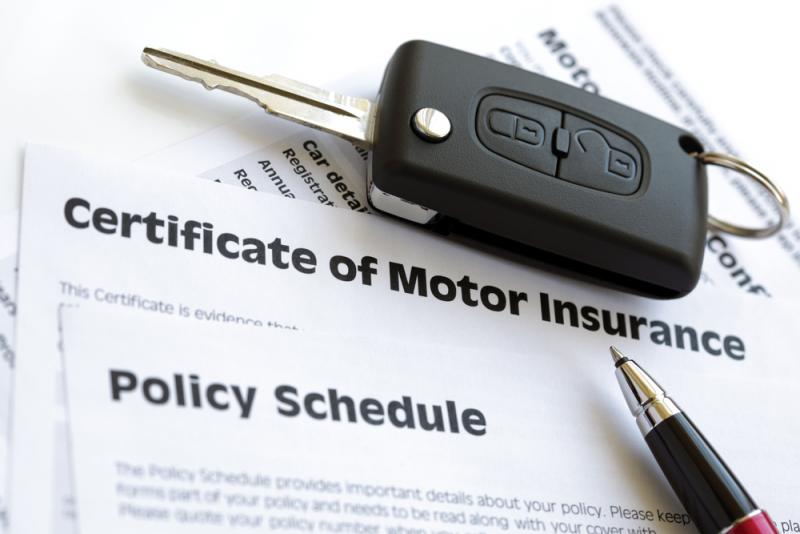Great reasons to choose Admiral Car Insurance
5 Star rated cover
Our Admiral, Gold, and Platinum comprehensive cover has Defaqto's highest rating
Uninsured driver promise
With our comprehensive cover, we'll repay the excess for accidents caused by an uninsured driver (if you have their details)
24-hour emergency helpline
Excluding Third party only customers, you can chat to us 24/7 if you have an accident
What’s car insurance?
Car insurance is designed to protect you if your car is stolen, damaged, or in an accident.
You can choose from Third Party Only, Third Party Fire and Theft, and four tiers of comprehensive car insurance.
At the very least, your car insurance will cover you for the damage you may cause to someone else’s vehicle. This is the most basic level of cover which is required by law for all drivers.
Depending on the type of cover you have, you could also be entitled to features like a 24-hour emergency helpline, a courtesy car if yours is out of action, or personal injury cover if you’re in an accident.
What level of cover do I need?
We offer three main levels of car insurance options that cover you for accident and damage costs.
Comprehensive car insurance
This is the highest level of insurance you can buy. It includes third party, fire & theft and covers the cost of repairing or replacing your car if it's involved in an accident or damaged maliciously. Excluding Essential tier, it comes with extra benefits like windscreen cover and extended cover for driving outside the UK.
Third party, fire and theft
As well as paying out to a third party if you're involved in an incident, this level of cover protects your car from damage caused by fire or theft. However, it doesn't cover the cost if your car's damaged in another way, such as a crash.
Third party only
This is the most basic level of cover required by law. If you're involved in an accident, we'll pay out the other driver involved but you won't be able to claim for damage to your car.
Compare car insurance cover levels
To help you choose the right level of cover, look at how they compare below.
Comprehensive Cover

|

|

|

|
|
|---|---|---|---|---|
Motor Legal Protection |
Optional | Optional | ||
Roadside Breakdown Cover |
Optional | Optional | Optional | |
Courtesy Car |
||||
Uninsured Driver Promise |
||||
£5,000 Personal Injury Cover |
||||
24hr Emergency Helpline |
||||
Replacement Lock (up to £500) |
||||
Child Car Seat |
||||
Personal Belongings |
Up to £300* |
Up to £300* |
Up to £200* |
|
Windscreen cover |
||||
New Car Replacement (Subject to criteria) |
||||
Driving Other Cars (Conditional) |
||||
European Cover for up to 90 days |
||||
Aftermarket Audio Gear |
||||
Onward Travel (Up to £150) |
Third Party Cover
Third party, Fire
|
Third Party
|
|
|---|---|---|
Motor Legal Protection |
Optional | Optional |
Roadside Breakdown Cover |
Optional | Optional |
Courtesy Car |
||
Uninsured Driver Promise |
||
£5,000 Personal Injury Cover |
||
24hr Emergency Helpline |
||
Replacement Lock (up to £500) |
||
Child Car Seat |
||
Personal Belongings |
||
Windscreen cover |
Optional | Optional |
New Car Replacement (Subject to criteria) |
||
Driving Other Cars (Conditional) |
||
European Cover for up to 90 days |
||
Aftermarket Audio Gear |
||
Onward Travel (Up to £150) |
*Personal belongings cover increased to £500 for campervans
If you’re not sure what some of our car insurance terms mean, check out our car insurance jargon buster or head to our car insurance FAQ page if you have any other questions.
Car insurance optional extras
-
Breakdown Cover
Unlimited UK roadside recoveries – 24/7, 365 days a year
-
Personal Injury Cover
Help when you're injured, even if you’re in someone else's car
-
Hire Vehicle Cover
We'll keep you on the road with a hire car if yours is written off or stolen
-
Motor Legal Protection
If you're in an accident that's not your fault, this cover will help with legal costs
Find out more about our optional add-ons designed to tailor your car insurance to you.
More about Car Insurance optional add-onsMultiCar Insurance
Bundle your car insurance, get the best cover, and get a MultiCar discount.
MultiCar InsuranceBlack Box Insurance
The smart way for drivers to get a great deal on car insurance.
LittleBox InsuranceElectric And Hybrid Car Insurance
Get the right cover for your electric car or hybrid.
What you need to get a car insurance quote
To insure your car effortlessly, make sure you have the following:
About your car
- Registration number
- When you bought it
- How much it's worth
- Any modifications
A bit about you
- Your name
- Age
- Where you live
- Your occupation
- Driver's licence and contact information for you and named drivers
What cover you need
- How you use your car
- Mileage
- What level of cover you need (comprehensive, third-party or third-party fire and theft policy)
How to make a claim
Read your policy book
Check what you're covered for, and the excess you'll need to pay
Prepare your information
Have your policy number and details of the incident ready
Contact us to make a claim
Visit our make a claim page or log into MyAccount to make your claim
If you have any questions about the claims process, head to our FAQ page below.
Claims FAQsHow we calculate your car insurance cost
We use multiple factors to calculate car insurance prices. We constantly check the prices we charge to offer you the best car insurance premium, but prices also fluctuate depending on the market. Here are a few factors:
- Your information – Generally, the older you are and the longer you've been driving means you'll have cheaper premiums than a younger or newer driver.
- Where you live – We check the number of claims in your area and whether they're due to things like theft, damage or volume of traffic.
- The car you insure – We use our insurance groups and claims history of your car make and model. Find out more about car insurance groups and how they're calculated.
- Your driving habits – The more you drive, the more likely you'll be involved in an accident. This is also why commuters are likely to have a higher premium.
- Insurance Premium Tax (IPT) – By law, we add a 12% tax to your car insurance premium. Read more about why we do this here.
Read more about our customers' experiences
We care what our customers have to say about us.


